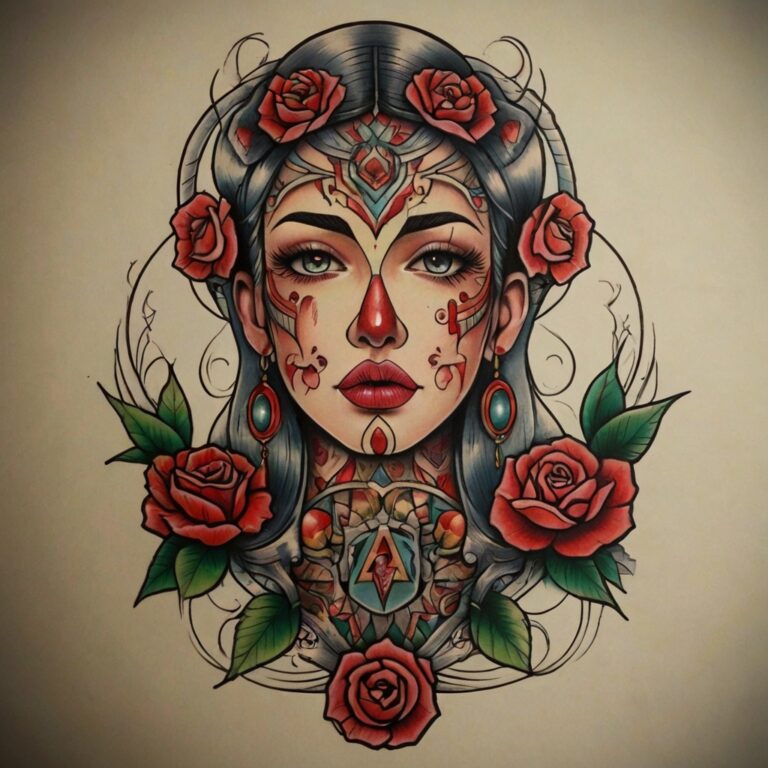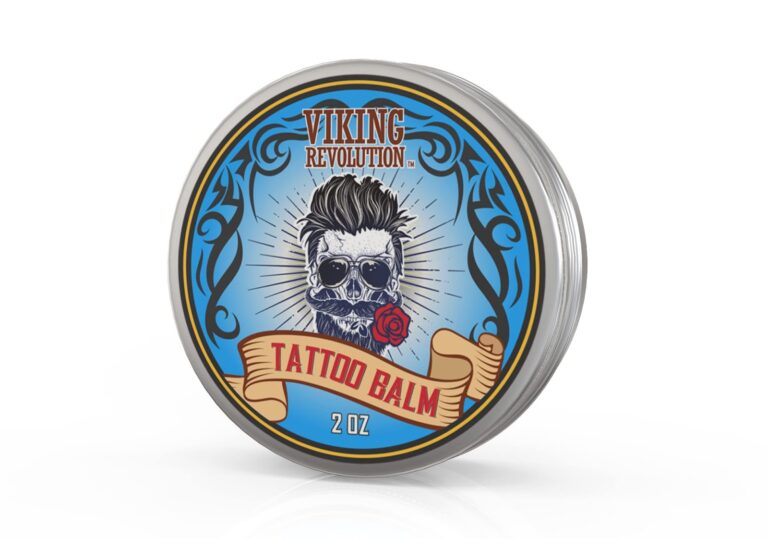Poppy tattoos are designs that feature the poppy flower, which holds significant meanings across various cultures.
Primarily, they symbolize remembrance, particularly for those who sacrificed their lives in wars. However, the symbolism of poppy tattoos delves deeper, representing personal resilience and transformation as well.
Individuals choose poppy tattoos for various reasons, often reflecting a blend of homage to fallen soldiers and personal journeys of growth or healing.
In this post, we will explore the diverse designs of poppy tattoos, their cultural interpretations, and the unique stories behind why people are drawn to this powerful symbol.
Historical Significance of Poppies
Poppies may symbolize remembrance, particularly in relation to World War I and the sacrifices of soldiers. They gained this powerful association from the poem 'In Flanders Fields,' which described how poppies grew among the graves of fallen soldiers.
The flower may also represent hope and renewal, as they flourished in battlefields after the war, symbolizing resilience.
Wearing a poppy on Remembrance Day or Memorial Day may honor veterans and acknowledge their sacrifices. The Royal British Legion adopted the poppy as a symbol of remembrance in 1921, reinforcing its historical significance.
A poppy tattoo may serve as a personal tribute, connecting you to a legacy of remembering those who sacrificed for freedom.
Symbolism in Different Cultures
In various cultures, the poppy may symbolize diverse concepts beyond its associations with war and remembrance. Here are some key interpretations:
- Sleep and Dreams: The poppy may symbolize sleep and dreams, often representing the peacefulness of sleep or the dream world due to its opiate properties.
- Fertility and Abundance: In agricultural societies, poppies may represent fertility and nature's abundance, signaling a bountiful harvest and symbolizing prosperity and growth.
- Love and Passion: In the language of flowers, poppies may symbolize love and passion, often given as a romantic gesture to reflect deep emotions and desires.
- Transience of Life: The short-lived beauty of the poppy may serve as a reminder of life's transience, symbolizing mortality and the importance of cherishing the present moment.
Understanding these meanings may enhance your appreciation of the poppy's cultural significance, whether you're considering a tattoo or simply drawn to the flower.
Poppy Tattoos in Military Remembrance
A poppy tattoo serves as a tribute to those who've sacrificed their lives in military service, symbolizing remembrance and honor. The red poppy may be recognized as a universal symbol of remembrance, particularly linked to the aftermath of World War I.
Choosing a poppy tattoo may reflect your respect for those who fought for freedom. This tattoo may also spark conversations about military service and the significance of the flower, allowing you to educate others about the sacrifices made in war.
Poppy tattoos may be personalized in various ways, allowing you to combine the poppy with military insignia, dates, or other elements that honor specific individuals or events. Each design may tell a unique story, helping you carry a piece of military history with you.
Ultimately, a poppy tattoo may not only be an aesthetic choice but also a commitment to honor and remember those who gave everything, ensuring their sacrifices aren't forgotten.
Emotional Healing and Resilience
A poppy tattoo may symbolize emotional healing and resilience, serving as a reminder of your journey through pain and loss.
Here are four ways a poppy tattoo may signify your path to emotional healing:
- Acknowledgment of Grief: The poppy may represent remembrance, allowing you to acknowledge feelings of loss and grief while fostering healing.
- Resilience Through Adversity: The poppy flower may bloom in difficult conditions, symbolizing your ability to thrive despite hardships and reminding you of your strength in overcoming obstacles.
- Connection to Others: A poppy tattoo may connect you with a community of individuals who've faced similar emotional battles, providing an opportunity to share your story and hear others' journeys.
- Personal Transformation: A poppy tattoo may represent personal transformation, signifying not just survival but also thriving and evolving from pain to empowerment.
Through this tattoo, you may carry a message of hope and strength wherever you go.
Aesthetic Appeal of Poppy Designs
Poppy designs may captivate with their vibrant colors and intricate details, making them a popular choice for tattoos. The bold reds, soft pinks, and deep blacks of poppies may evoke strong emotions associated with passion, love, and remembrance.
When considering a poppy tattoo, the design may complement your personal style, whether you prefer minimalist outlines or elaborate watercolor interpretations. Poppy tattoos may adapt to various aesthetics, and their fluid petals and delicate seeds may invite exploration of different artistic approaches.
The shape of the poppy may allow for creative placement options, from small designs on the wrist to larger pieces on the back or thigh. This versatility may provide opportunities to express individuality while embracing the flower's beauty.
Poppy designs may not only be visually stunning but also carry layers of meaning that resonate with many. This combination of aesthetic appeal and significance may make poppy tattoos a timeless choice, reflecting personal journeys through eye-catching art on the skin.
Let the allure of poppy designs guide your decision for your next tattoo.
Variations of Poppy Tattoo Styles
Exploring the variations of poppy tattoo styles reveals distinct artistic interpretations, each honoring the flower's significance. Here are four popular styles to consider:
- Traditional Poppy: Bold lines and vibrant colors highlight the flower's striking red hue, capturing its classic beauty.
- Watercolor Poppy: This modern style uses soft, blended colors that may create a dreamy, ethereal effect.
- Minimalist Poppy: Featuring clean lines and subtle details, this style may use black ink or a limited color palette for simplicity.
- Realistic Poppy: Intricate shading and details in this style may make the tattoo appear almost three-dimensional, resembling a photograph.
Each style may offer a unique way to express your connection to the symbolism of poppies, allowing you to choose one that resonates with your personal aesthetic.
Personal Stories Behind Poppy Tattoos
Poppy tattoos may symbolize remembrance of loved ones lost in war or resilience in the face of adversity. Each tattoo often tells a unique, deeply personal story.
For example, Sarah got her poppy tattoo to remember her grandfather, who fought in World War II. The tattoo may serve as a reminder of his courage and sacrifices. For her, the poppy not only symbolizes loss but also the strength that comes from remembering those who've passed.
Mark chose a poppy to represent his battle with depression. The flower may symbolize that beauty can emerge from pain, representing his journey towards healing and resilience.
When considering a poppy tattoo, think about what it may represent for you—whether it's a tribute to a fallen hero or a symbol of personal struggles. Ultimately, your poppy tattoo may become a part of your identity, a visible mark of your experiences and emotions, transcending mere ink into a powerful narrative etched into your skin.
–
What Colors Are Commonly Used in Poppy Tattoos?
Common colors used in poppy tattoos may include vibrant reds, black for outlines, greens for stems and leaves, and sometimes blue or purple for a unique twist.
Red is often the primary choice, symbolizing passion and remembrance.
Don't hesitate to personalize your design with colors that resonate with you, making your tattoo truly one-of-a-kind!
Are Poppy Tattoos Suitable for Both Men and Women?
Yes, poppy tattoos are suitable for both men and women. The design's versatility may allow you to choose styles that resonate with your personal taste, whether you prefer bold or delicate looks.
Many people find that the symbolism behind the poppy may add depth to the tattoo, making it meaningful for anyone.
How Painful Is Getting a Poppy Tattoo?
Getting a poppy tattoo may be somewhat painful. The level of discomfort you feel may depend on your pain tolerance, the tattoo's size, and where it's placed.
Generally, areas with more flesh or muscle, like the arm, may hurt less than bony spots like the ribs or ankles. Most people find the initial sting bearable, but everyone's experience may vary.
Just remember, it's all part of the process!
What Are Popular Placements for Poppy Tattoos?
Popular placements for poppy tattoos include the forearm, shoulder, wrist, and thigh.
When considering where to place your poppy tattoo, think about visibility and personal significance. The forearm may be a great option for easy visibility, while the shoulder may offer a more private display.
The wrist may be suitable for smaller designs, and the thigh may allow for larger artwork.
Ultimately, you should choose a location that resonates with you and reflects your style, making it a meaningful part of your body art collection.
Can Poppy Tattoos Be Combined With Other Designs?
Yes, poppy tattoos may be combined with other designs!
Consider adding elements like geometric shapes, watercolor splashes, or even other flowers to enhance the overall look.
You may also think about incorporating meaningful symbols or quotes that resonate with you.
The key is to ensure the designs flow well together, creating a cohesive piece.
Don't hesitate to consult with your tattoo artist for ideas on how to blend different styles seamlessly!
Conclusion
To sum up, poppy tattoos are more than just beautiful designs; they carry deep meanings of remembrance, resilience, and personal transformation.
Whether you're honoring a loved one, commemorating a significant event, or expressing your journey through grief, these tattoos serve as powerful symbols of your story.
With their diverse styles and rich history, a poppy tattoo can be a meaningful addition to your body art, reflecting both your individuality and your connection to something greater.







